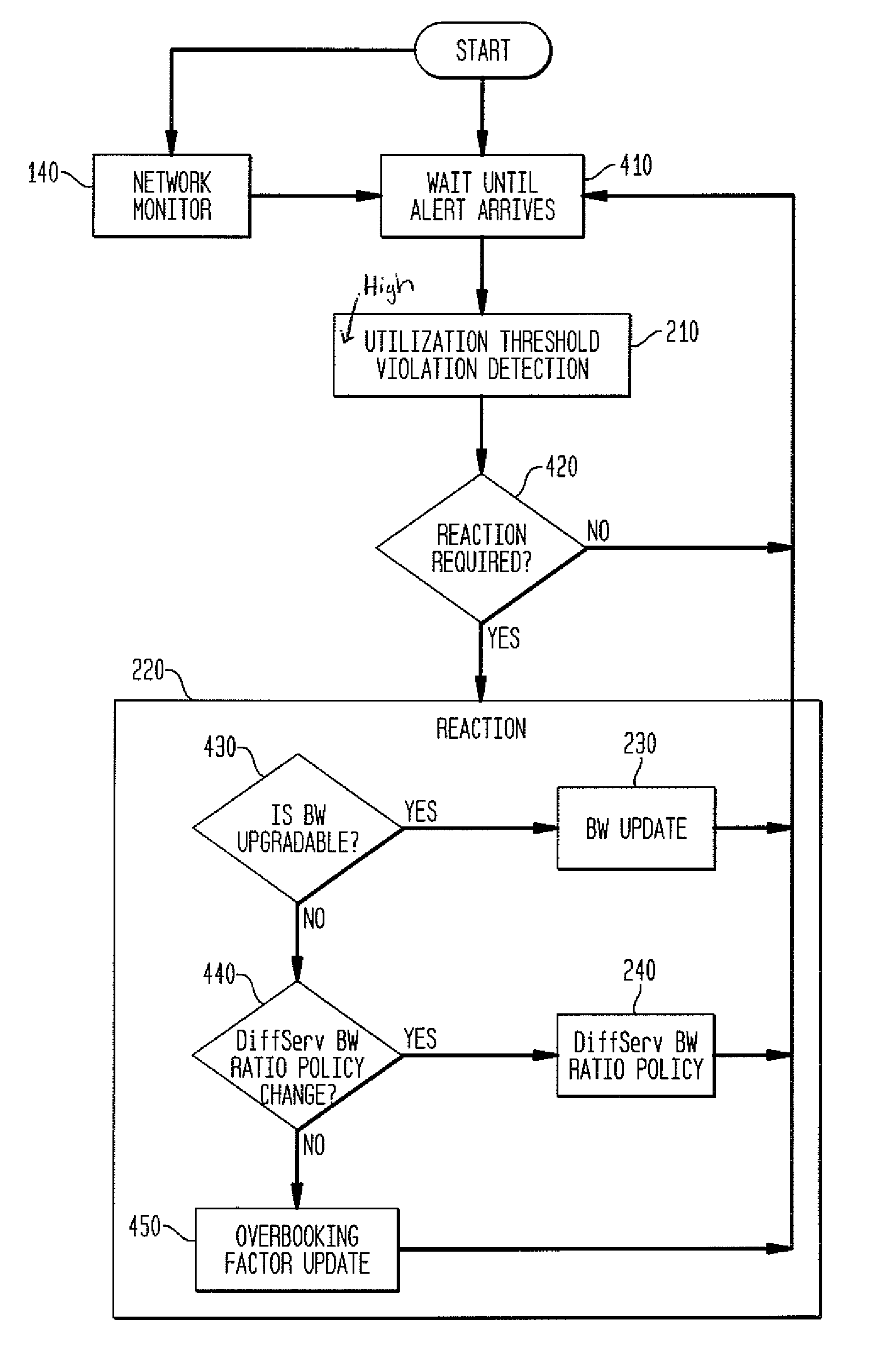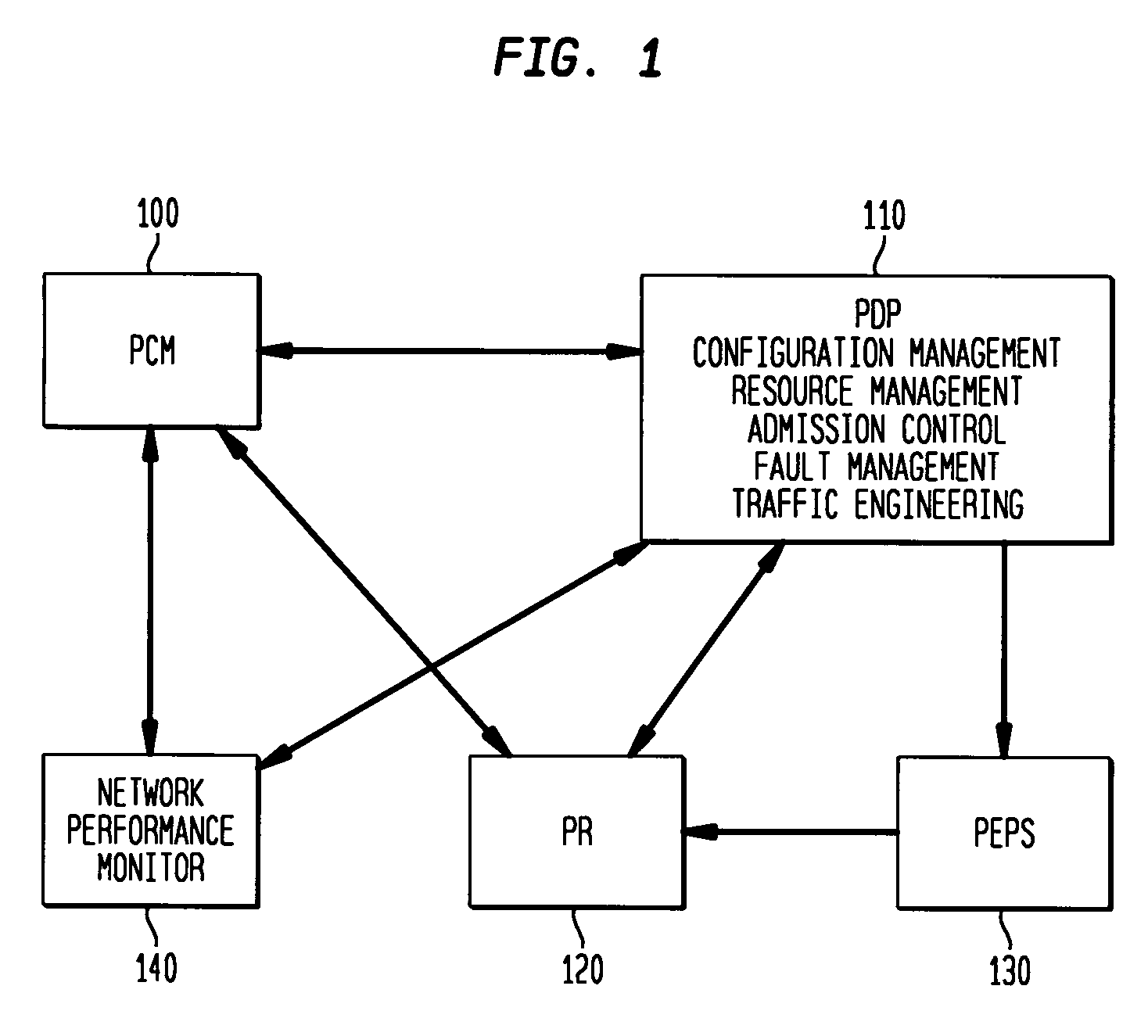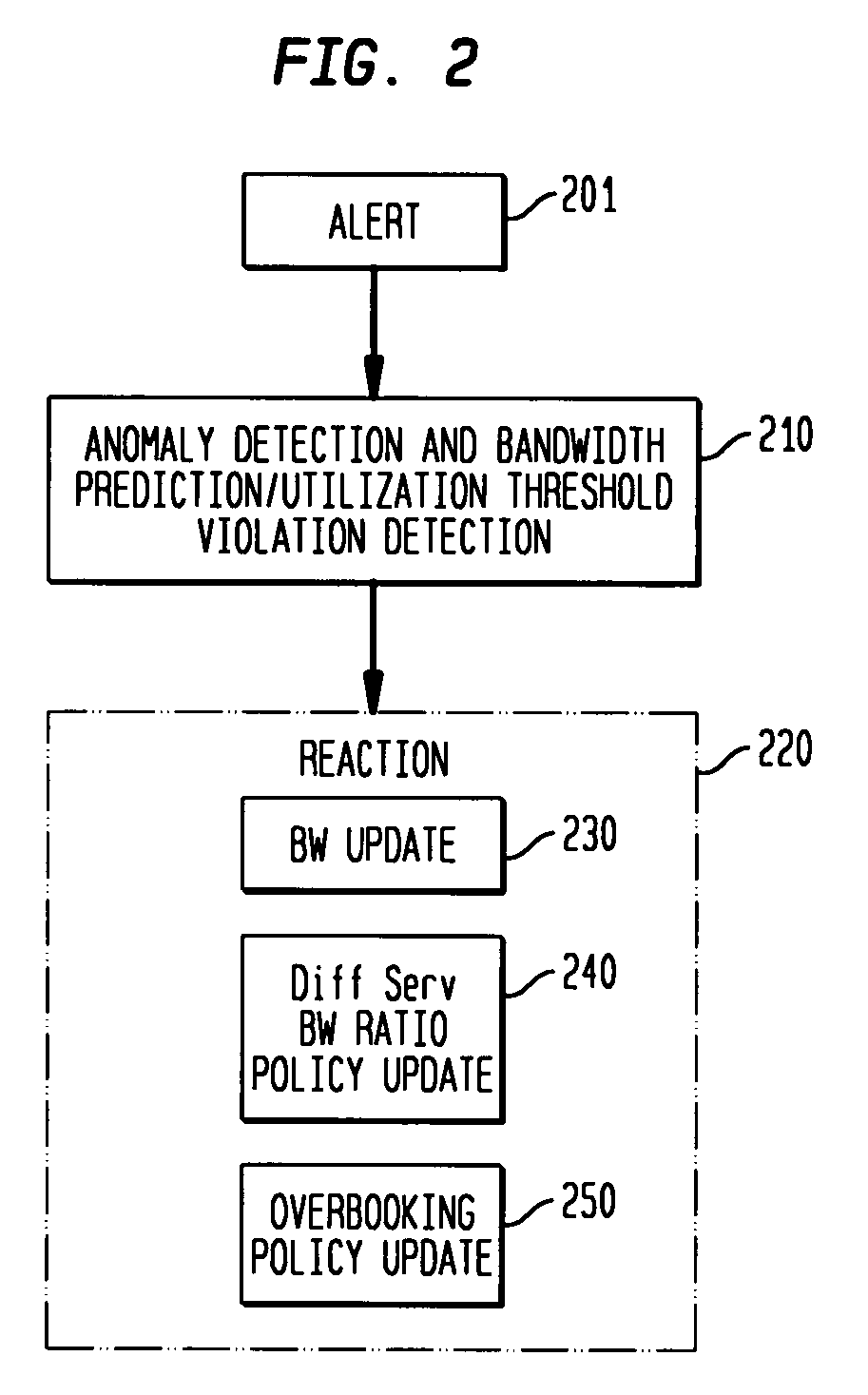Automatic policy change management scheme for DiffServ-enabled MPLS networks
a technology of automatic policy change and network, applied in the field of network resource management, can solve the problems of lack of overall high-level scheme, inefficient network configuration, and inability to offer service quality guarantees, so as to improve the quality of service and service level agreement compliance, promote resource utilization, and optimize resource allocation
- Summary
- Abstract
- Description
- Claims
- Application Information
AI Technical Summary
Benefits of technology
Problems solved by technology
Method used
Image
Examples
Embodiment Construction
[0017]An inventive solution to the need for a method for managing network resources of a DiffServ-enabled network by dynamically adapting network policies using a policy change management scheme is presented.
[0018]This policy change management scheme includes (1) resource management policies for controlling network resources, (2) an overall scheme that jointly controls policy changes in bandwidth allocation, link scheduling, and admission control based on network status feedback events and traffic measurement, (3) a method for adjusting the link bandwidth ratio or DiffServ Bandwidth Ratio (DSR) policy for multiple service classes based on network traffic measurement, and (4) a method for adjusting the Overbooking Factor (OBF) for traffic admission control based on traffic measurement.
[0019]FIG. 1 depicts PCM 100 integrated into a typical system architecture employing Policy Based Resource Management (PBRM). The system consists of external functional components including Policy Decis...
PUM
 Login to View More
Login to View More Abstract
Description
Claims
Application Information
 Login to View More
Login to View More - R&D
- Intellectual Property
- Life Sciences
- Materials
- Tech Scout
- Unparalleled Data Quality
- Higher Quality Content
- 60% Fewer Hallucinations
Browse by: Latest US Patents, China's latest patents, Technical Efficacy Thesaurus, Application Domain, Technology Topic, Popular Technical Reports.
© 2025 PatSnap. All rights reserved.Legal|Privacy policy|Modern Slavery Act Transparency Statement|Sitemap|About US| Contact US: help@patsnap.com



